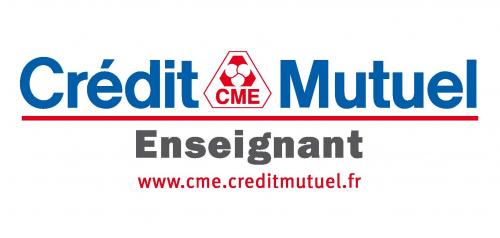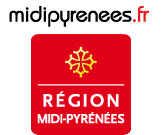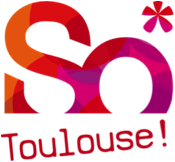Call for Papers - DaWaK 2011
13th International Conference on Data Warehousing and Knowledge Discovery - DaWaK 2011
Toulouse, France
August 29 - September 2, 2011
Data Warehousing and Knowledge Discovery has been widely accepted as a key technology for enterprises and organizations to improve their abilities in data analysis, decision support, and the automatic extraction of knowledge from data. With the exponentially growing amount of information to be included in the decision making process, the data to be considered becomes more and more complex in both structure and semantics. New developments such as cloud computing add to the challenges with massive scaling, a new computing infrastructure, and new types of data. Consequently, the process of retrieval and knowledge discovery from this huge amount of heterogeneous complex data builds the litmus-test for the research in the area.
During the past years, the International Conference on Data Warehousing and Knowledge Discovery (DaWaK) has become one of the most important international scientific events to bring together researchers, developers and practitioners to discuss latest research issues and experiences in developing and deploying data warehousing and knowledge discovery systems, applications, and solutions. This year’s conference (DaWaK 2011), builds on this tradition of facilitating the cross-disciplinary exchange of ideas, experience and potential research directions. DaWaK 2011 seeks to introduce innovative principles, methods, algorithms and solutions to challenging problems faced in the development of data warehousing, knowledge discovery, data mining applications, and the emerging area of "cloud intelligence".
Submissions presenting current research work on both theoretical and practical aspects of data warehousing and knowledge discovery are encouraged. Particularly, we strongly welcome submissions dealing with emerging real world applications such as real-time data warehousing, analysis of spatial and spatiotemporal data, OLAP mining, mobile OLAP, and mining science data (e.g. bioinformatics, geophysics).
Major Tracks:
Following the new development of DaWaK 2010, in 2011 DaWaK is again organized into 4 tracks, each with a distinct focus. The four tracks, and their main topics are as follows:
Cloud Intelligence Track:
- Massive data analytics: algorithms, techniques, and systems
- Scalability and parallelization for cloud intelligence: map-reduce and beyond
- Analytics for the cloud infrastructure
- Analytics for unstructured, semi-structured, and structured data
- Semantic web intelligence
- Analytics for temporal, spatial, spatio-temporal, and mobile data
- Analytics for data streams and sensor data
- Analytics for multimedia data
- Analytics for social networks
- Real-time/right-time and event-based analytics
- Privacy and security in cloud intelligence
- Reliability and fault tolerance in cloud intelligence
Data Warehousing Track:
- Analytical front-end tools for DW and OLAP
- Data warehouse architecture
- Data extraction, cleansing, transforming and loading
- Data warehouse design (conceptual, logical and physical)
- Multidimensional modelling and queries
- Data warehousing consistency and quality
- Data warehouse maintenance and evolution
- Performance optimization and tuning
- Implementation/compression techniques
- Data warehouse metadata
Knowledge Discovery Track:
- Data mining techniques: clustering, classification, association rules, decision trees, etc.
- Data and knowledge representation
- Knowledge discovery framework and process, including pre- and post-processing
- Integration of data warehousing, OLAP and data mining
- Integrating constraints and knowledge in the KDD process
- Exploring data analysis, inference of causes, prediction
- Evaluating, consolidating, and explaining discovered knowledge
- Statistical techniques for generation a robust, consistent data model
- Interactive data exploration/visualization and discovery
- Languages and interfaces for data mining
- Mining Trends, Opportunities and Risks
- Mining from low-quality information sources
Industry and Applications Track:
- Data warehousing tools
- OLAP and analytics tools
- Data mining tools
- Industry experiences
- Data warehousing applications: corporate, scientific, government, healthcare, bioinformatics, etc.
- Data mining applications: bioinformatics, E-commerce, Web, intrusion/fraud detection, finance, healthcare, marketing, telecommunications, etc
- Data mining support for designing information systems
- Business Process Intelligence (BPI)
Paper Submission Details
Authors are invited to submit research and application papers representing original, previously unpublished work. Papers should be submitted in PDF or Word format. Submissions must conform to Springer's LNCS format and should not exceed 12 pages (including all text, figures, references and appendices). Authors who want to buy extra pages may submit a paper up to 15 pages with the indication that the authors will purchase extra pages if the paper is accepted. Submissions which do not conform to the LNCS format and/or which do exceed 12 pages (or up to 15 pages with the extra page purchase commitment) will be rejected without reviews. Submitted papers will be carefully evaluated based on originality, significance, technical soundness, and clarity of exposition. All accepted papers will be published in Lecture Notes in Computer Science (LNCS) by Springer-Verlag.
Duplicate submissions are not allowed. A submission is considered to be a duplicate submission if it is submitted to other conferences/workshops/journals or it has been already accepted to be published in other conferences/workshops/journals. Duplicate submissions thus will be automatically rejected without reviews. Submissions require explicit consent from all listed authors.
Authors of best papers selected from DaWaK 2011 conference will be invited to submit an extension for a special issue of LNCS Transactions on Large-Scale Data- and Knowledge-Centered Systems, edited by Springer-Verlag. Authors are requested to send the abstract of their paper to be received by March 19, 2011, due date of the full paper electronic submission is March 27, 2011.
Important Dates
- Submission of abstracts: March 19, 2011
- Submission of full papers: March 27, 2011 ---- extended deadline: April 11, 2011
- Notification of acceptance: May 17, 2011
- Camera-ready copies due: June 10, 2011
Program Chairs
- Alfredo Cuzzocrea, ICAR-CNR and University of Calabria, Italy
- Umeshwar Dayal, Hewlett-Packard Laboratories, Palo Alto, CA, USA
Program Committee
Alberto Abello, Universitat Politecnica de Catalunya, Spain
Reda Alhajj, University of Calgary, Canada
Elena Baralis, Politecnico di Torino, Italy
Ladjel Bellatreche, LISI/ENSMA, France
Bettina Berendt, Humboldt University Berlin, Germany
Petr Berka, University of Economics Prage, Cezch Republic
Jorge Bernardino, SEC, Polytechnic Institute of Coimbra, Portugal
Elisa Bertino, Purdue University, USA
Francesco Bonchi, Yahoo! Research, Spain
Stephane Bressan, National University of Singapore, Singapore
Erik Buchmann, Universität Karlsruhe, Germany
Longbing Cao, University of Technology Sydney, Australia
Nitesh Chawla, University of Notre Dame, USA
Frans Coenen, The University of Liverpool, UK
Bruno Cremilleux, Universite de Caen, France
Judith Cushing, The Evergreen State College, USA
Alfredo Cuzzocrea, University of Calabria, Italy
Karen Davis, University of Cincinnati, USA
Frank Dehne, Carleton University, Canada
Antonios Deligiannakis, Technical University of Crete, Greece
Alin Dobra, University of Florida, USA
Josep Domingo-Ferrer, Universitat Rovira i Virgili, Catalonia
Dejing Dou, University of Oregon, USA
Curtis Dyreson, Utah State University, USA
Todd Eavis, Concordia University, USA
Johann Eder, University of Klagenfurt, Austria
Floriana Esposito, University of Calabria, Italy
Vladimir Estivill-Castro, Griffith University, Australia
Christie Ezeife, University of Windsor, Canada
Ling Feng, Tsinghua University, China
Eduardo Fernandez-Medina, University of Castilla-La Mancha, Spain
Sergio Greco, University of Calabria, Italy
Se June Hong, RSM emeritus, IBM TJ Watson Research Center, USA
Frank Hoppner, University of Applied Sciences Braunschweig/Wolfenbuettel, Germany
Andreas Hotho, University of Kassel, Germany
Jimmy Huang, York University, Canada
Yong Hwan-Seung, Ewha Womans University, Korea
Hasan Jamil, Wayne State University, USA
Chris Jermaine, Rice University, USA
Murat Kantarcioglu, University of Texas at Dallas, USA
Panagiotis Karras, National University of Singapore, Singapore
Martin Kersten, CWI, The Netherlands
Taghi Khoshgoftaar, Florida Atlantic University, USA
Arno Knobbe, Universiteit Utrecht, Neitherlands
Jens Lechtenbörger, Universität Münster, Germany
Wolfgang Lehner, Dresden University of Technology, Germany
Carson K. Leung, The University of Manitoba, Canada
Jinyan Li, National University of Singapore, Singapore
Xuemin Lin, UNSW, Australia
Patrick Martin, Queen's University, Canada
Michael May, Fraunhofer Institut für Autonome Intelligente Systeme, Germany
Carlos Ordonez, University of Houston, USA
Apostolos Papadopoulos, Aristotle University, Greece
Jeffrey Parsons, Memorial University of Newfoundland, Canada
Torben Bach Pedersen, Aalborg University, Denmark
Adriana Prado, INSA-Lyon, LIRIS, France
Lu Qin, The Chinese University of Hong Kong, China
Zbigniew W. Ras, University of North Carolina, USA
Mirek Riedewald, Cornell University, USA
Stefano Rizzi, University of Bologna, Italy
Domenico Saccà, University of Calabria & ICAR-CNR, Italy
Maria Luisa Sapino, Università degli Studi di Torino, Italy
Kai-Uwe Sattler, Ilmenau University of Technology, Germany
Timos Sellis, Institute for the Management of Information Systems & NTUA, Greece
Neeraj Sharma, India IBM Labs, India
Alkis Simitsis, Stanford University, USA
Domenico Talia, University of Calabria, Italy
David Taniar, Monash University, Australia
Yufei Tao, Chinese University of Hong Kong, China
Dimitri Theodoratos, New Jersey’s Science & Technology University, USA
A Min Tjoa, IFS, Vienna University of Technology, Austria
Juan Trujilo, University of Alicante, Spain
Panos Vassiliadis, University of Ioannina, Greece
Millist Vincent, University of South Australia, Australia
Gottfried Vossen, University of Munster, Germany
Wei Wang, UNSW, Australia
Ranga Vatsavai, Oak Ridge National Laboratory, USA
Marcos Vaz Salles, Cornell University, USA
Wolfram Wöß, University of Linz, Austria
Robert Wrembel, Poznan University of Technology, Poland
Carlo Zaniolo, University of California, Los Angeles, USA
Bin Zhou, Simon Fraser University, Canada
Esteban Zimanyi, Universite Libre de Bruxelles, Belgium
For further inquiries, contact the DaWaK 2011 PC Co-Chairpersons: Alfredo Cuzzocrea (cuzzocrea@si.deis.unical.it), or Umeshwar Dayal (Umeshwar.Dayal@hp.com)











